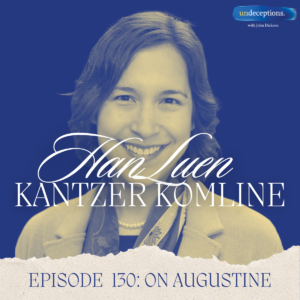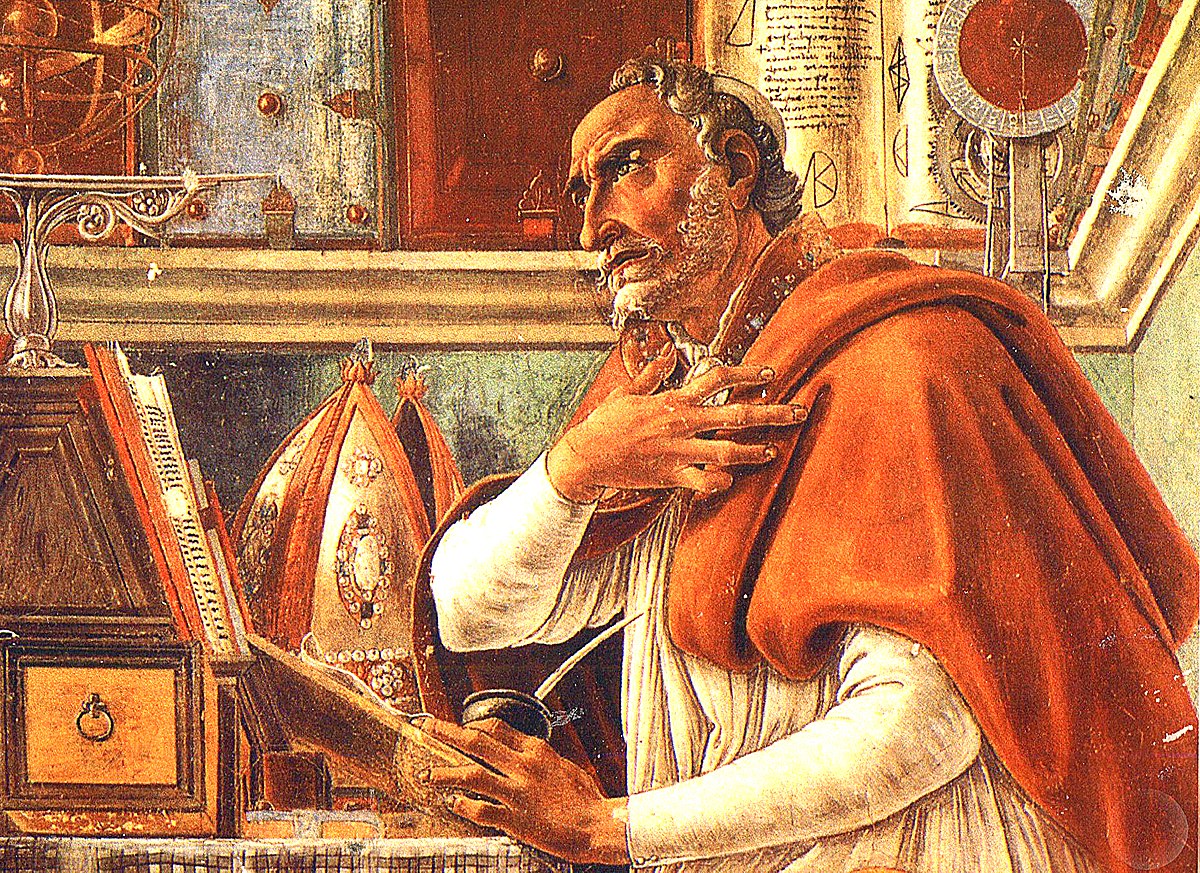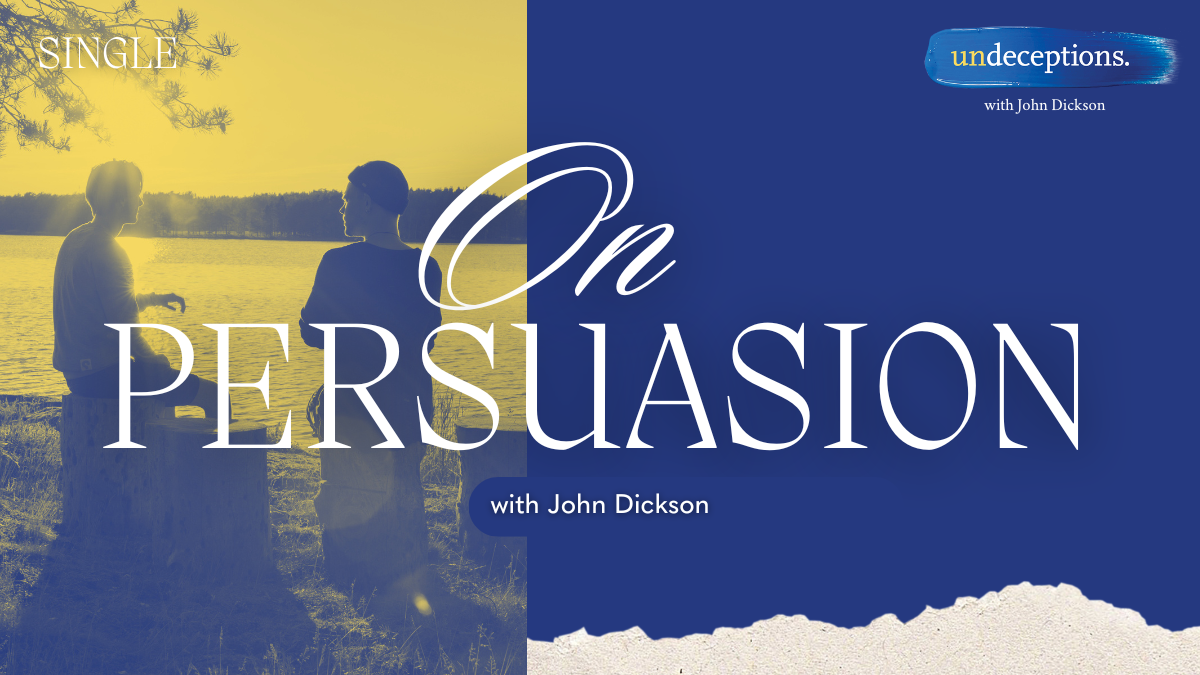In book X of Augustine’s Confessions, the tortured writer, ruminating on his sinfulness, writes Mihi quaestio factus sum – “I have become a question to myself”.
It’s quotes like this that have caused thinkers to write Augustine off as an early middle-age pessimist. The great American philosopher John Rawls branded Augustine as one of the dark minds of Western thought (Fyodor Dostoevsky was the other person to receive this honorary title).
Augustine’s self-loathing stands opposed to the self-esteem craze that emerged in the global west in the mid-80s and has largely carried through to today.
Surely mantras like that will only fuel the epidemic of mental health facing us in the 21st century?
As it turns out, Augustine himself was writing during a cultural tug-o-war on self-esteem – and this idea – that he, himself, could be a failure, turned out to be one of his most important, and liberating, ideas.
Having grown up in modern-day Algeria as the Roman Empire collapsed around him, Augustine began his career as an academic in a rapidly shifting cultural milieu.
New York Times opinion writer Mark Lilla, citing Peter Brown’s biography of Augustine, notes that he was “placed …. squarely in the world of late antiquity, the first few centuries of the Common Era when Roman and Greek pagans, Christian sectarians and mystics of every stripe competed for allegiance, and individuals floated from one community to another or mixed their eclectic spiritual cocktails”.
As always, The School of Life has a wonderful video to introduce newcomers to Augustine
One of these Christian sects was Pelagianism, an overly rigorous version of Christianity that taught through human potential, someone could achieve whatever they wanted – even to the point of being sinless!
As Pelagius himself wrote, in 285 AD:
Most people look at the virtues in others and imagine that such virtues are far beyond their reach. Yet God has implanted in every person the capacity to attain the very highest level of virtue.
Sounds familiar, right? If you can dream it you can do it. Aim for the moon and you’ll fall among the stars. Etc. Etc.
Augustine vehemently disagreed, instead positing that humans were innately corrupt and pre-disposed to acting in their selfish interests.
Confessions is full of illustrations of this, drawn from Augustine’s own life. One of the most famous examples is an anecdote he tells of stealing a bunch of pears as a child.
“It was foul, and I loved it. I loved my own undoing. I loved my error–not that for which I erred but the error itself. A depraved soul, falling away from security in thee to destruction in itself, seeking nothing from the shameful deed but shame itself.”
Augustine wasn’t trying to be a complete downer and drag his audience with him. Rather, he recognised that the pursuit of – and expectation of – moral perfection was crushing, and unrealistic.
“Our inherited nature is a strange mix of good and bad. We are free to act as we choose but not wholly free to act for the good 100% of the time,” John Dickson said.
“(Augustine’s) fancy phrase for this was, liberum arbitrium captivatum, ‘free will in captivity’. That is, our will might be free but it is also weakened by our nature.”
Funnily enough, modern research is finding Augustine may have been onto something.
A study reported in The Atlantic found 87 per cent of U.S. parents believed their children needed praise to feel good about themselves. However, research conducted by Eddie Brummelman, a psychologist at the University of Amsterdam, found that excessive praise could have the opposite effect.
Brummelman theorized that when kids with low self-esteem heard inflated praise, they interpreted it as pressure to continue performing exceptionally. In other words, constant words of affirmation could hurt the individual. It was this affirmation craze that Augustine could see building in parts of the church in the 5th century.
Augustinian scholar and church historian Han-Luen Kantzer Komline notes that at the core of Augustine’s response to this was a message of hope and encouragement.
“Augustine’s alleged pessimism about the human condition is something hopeful because it corresponds to a really broad view of God’s grace,” she said on Undeceptions.
“It corresponds to an acknowledgment of our neediness as human beings and that that’s okay.”
Of course, there’s a religious dimension to Augusitne’s thought, which might be a turn-off to any secular readers.
But even without this addition, the notion that we aren’t perfect – and that’s perfectly ok – should be good news.
Former atheist-turned-Christian evangelist Francis Spufford offers this in his work Unapologetic: Why, despite everything, Christianity can still make surprising emotional sense:
“I’ve found that admitting there’s some black in the colour chart of my psyche doesn’t invite the blot of dark to swell, or give a partial truth more gloomy power over me than it should have, but the opposite. Admitting there’s some black in the mixture makes it matter less. It makes it easier to pay attention to the mixedness of the rest. It helps you stop wasting your time on denial, and therefore helps you stop ricocheting between unrealistic self-praise and unrealistic self-blame. It helps you be kind to yourself.”
Again, he’s a man of faith.
However, understanding that humanity had innately fallen gave Spufford a sense of freedom. Kantzer Komline explains further:
“Augustine doesn’t say ‘We’re sinful, so just be complacent and do whatever you want to do and it’s all fine’. He urges people to give it their best shot to keep growing, but also acknowledges that it’s really slow and arduous, and there is going to be progress and there’s going to be regress and that this is normal … you have to rely on God’s grace to sustain yourself through that.”
Augustine believed we can only see glory – the glory of God, and our glory – when we acknowledge our fallenness.
He asked Mihi quaestio factus sum – but to his surprise, he found the answer came not from within himself, but from the God of the Hebrews.
Adapted by Alasdair Belling from the Undeceptions episode ‘On Augustine’. Listen here


Want to be further undeceived?
Check out our network of podcasts and articles in the Undeceptions Library.














































